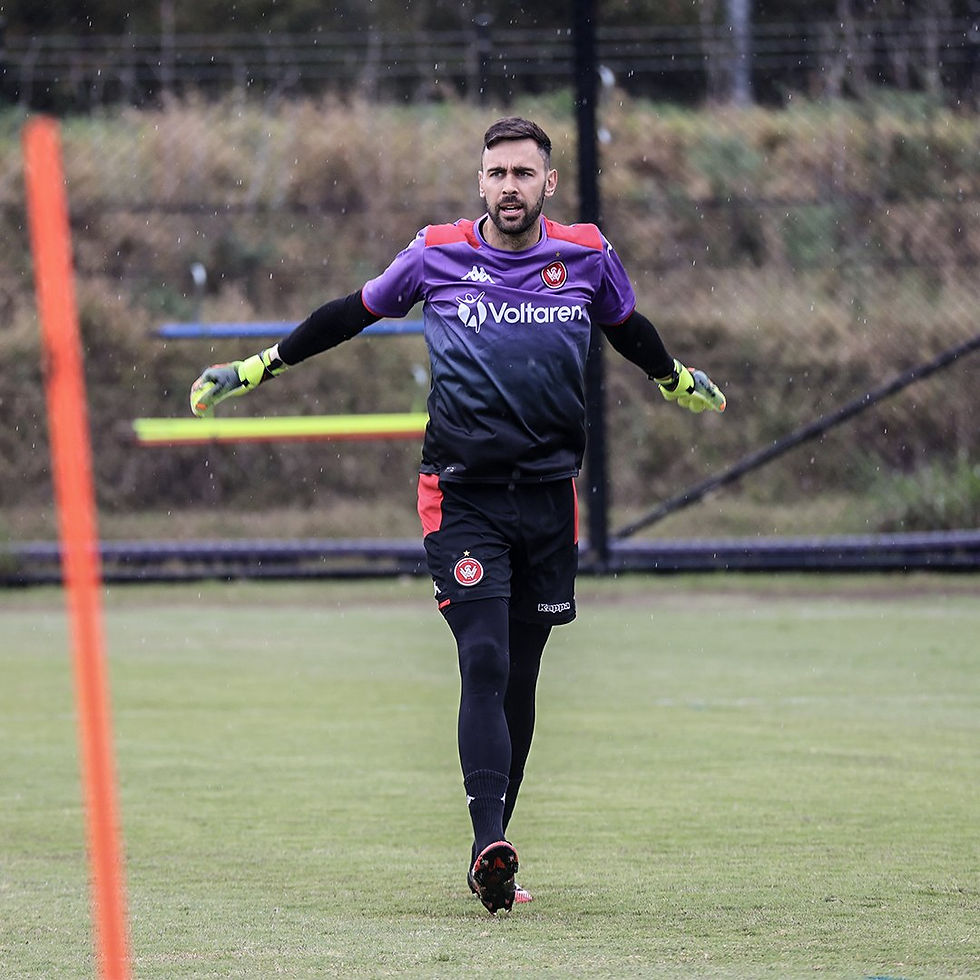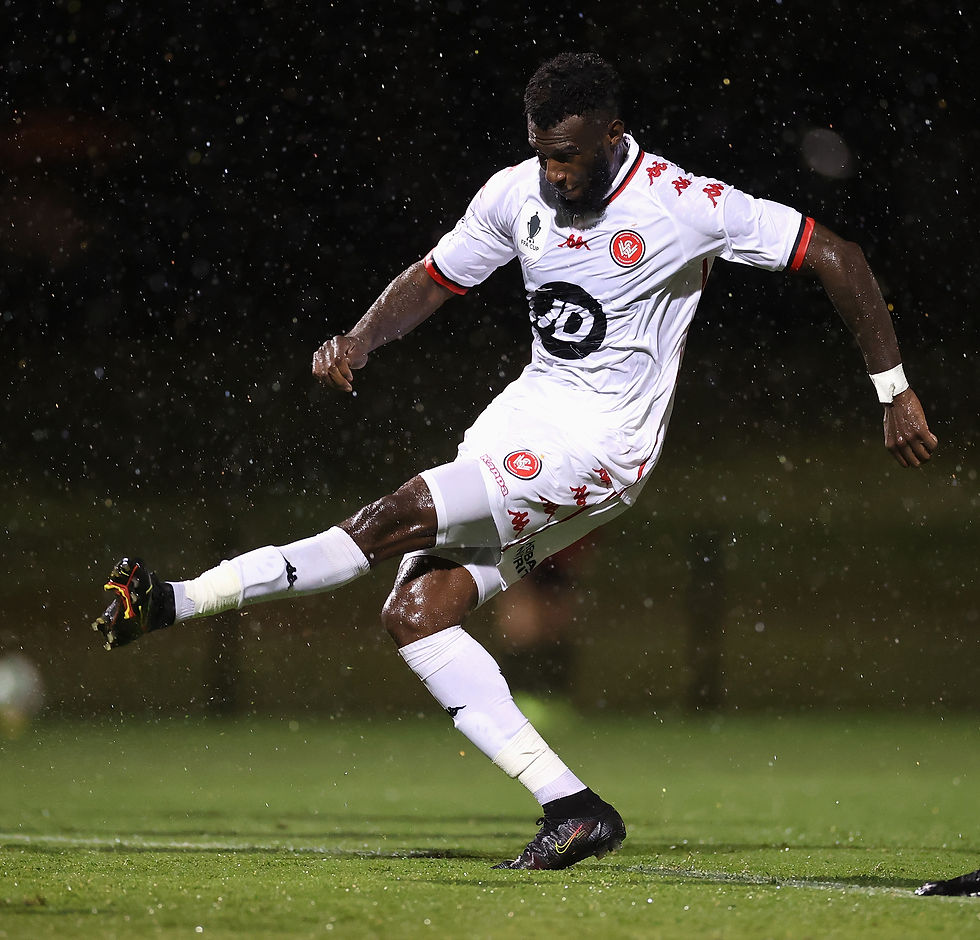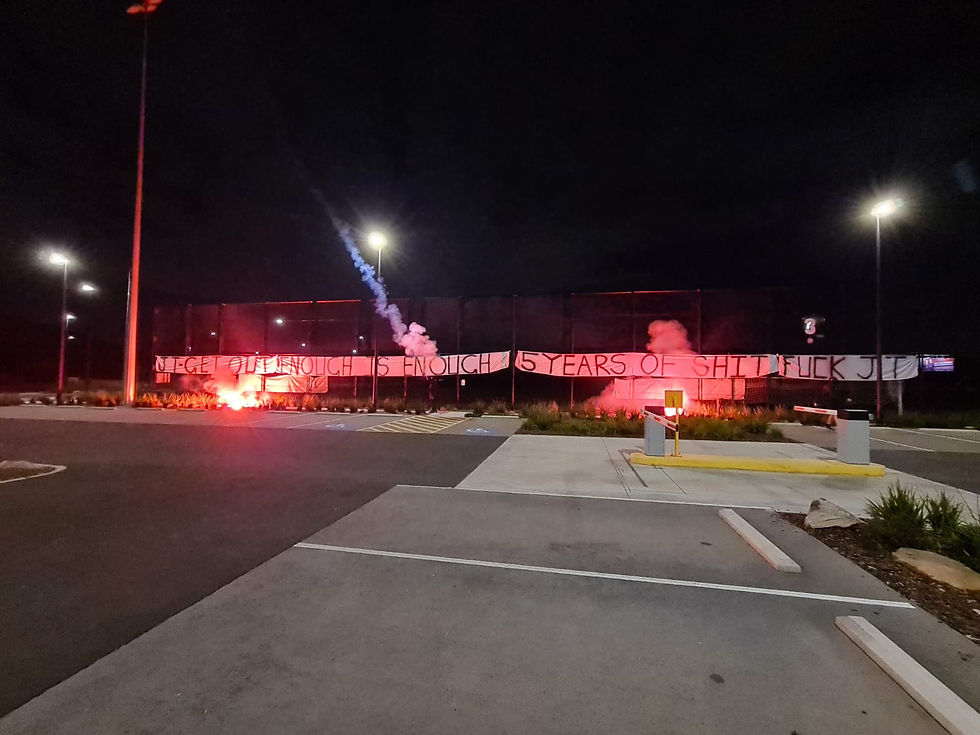Under pressure Robinson hopes off-season changes will lead the Wanderers back to the finals
- Patrick Brischetto
- Nov 16, 2021
- 4 min read
Updated: Oct 15, 2022
The 2020-21 season for the Western Sydney Wanderers and Carl Robinson was nothing short of an enormous disappointment.
Off the back of poaching the Welshman from the struggling Newcastle Jets, fans expected big things in Wanderland; a finals birth at the minimum, a run for silverware at the most.
Yet come season's end, the Wanderers sat in 8th, four points off the top six and with a manager publicly criticising the quality of the leadership within the team.
Their performances were largely inconsistent, and certain individuals were underwhelming.
The team's defence was often undoing the good work going forward.
Some sections of a Wanderer's fanbase starved of success were calling for a change in the dugout.
But CEO John Tsatsimas and owner Paul Lederer have kept faith in Robinson, allowing him to clear out the deadwood and bring in more players that fit his philosophy.
Except for Bruce Kamau, whose brilliant performances saw him move overseas, and Socceroo Mitch Duke, whose loan expired, the Wanderers have shifted on several underperformers.
Dylan McGowan, Jordon Mutch, Nicolai Muller, and Patrick Ziegler promised to produce much more than they ultimately did.
Multiple players with A-League experience and pedigree, Rhys Williams, Adama Traore, Terry Antonis and Dimitri Petratos, will wear the Red and Black hoops this season.

To complement this, foreigners Keijiro Ogawa, Tomer Hemed and Tomas Mejias have signed, adding experience and quality to the side.
Many of these signings look highly promising.
The signing of Williams, who has captained Middlesborough, played for the Socceroos, and won titles with the Melbourne Victory, will go a long way in filling the leadership void alluded to by Robinson.
Williams has been named captain for the upcoming season.
At face value, at least, the signings appear to have significantly improved the depth and balance of a squad accused of being top-heavy and having too big a drop off in quality between the starters and rotation players.
However, the personnel introduced and their arrival is Robinson's ploy to alleviate two problems that plagued the Wanderers last season.
Firstly - apart from Ogawa and Mejias - the Wanderers' recruits have had a full pre-season to speed, gel with their new teammates, and adjust to Robinson's tactical style.
Contrastingly, players who Robinson signed to be key cogs in the team last season joined just before or during the season.
The impact of this was particularly evident with the struggles of Bernie Ibini and James Troisi.

Both players were supposed to combine in attack and fire the Wanderers to success.
But they struggled to gel with their new teammates and were short on fitness due to their shortened pre-season.
Another change that fans in Parramatta should expect is some variation in the tactics.
A common criticism of Robinson's Wanderers last season was their tactical setup.
Often deploying a 3-5-2, they were often outnumbered in midfield, and teams exploited the spaces behind the marauding wingbacks.
There was an occasional deviation from the setup, most notably in the 3-2 derby success over Sydney FC, where Robinson employed a defensive 4-2-3-1.
But for much of the season, the Wanderers ran with a system that left them vulnerable on the counter-attack.
However, it appears that Robinson has recognised the need for variation in the Wanderers set up.
In an interview with Kick360, he stated that the new signings enable the Wanderers to "be more tactically flexible and to play with both a back three and four".
In pre-season, it appears that the Wanderers have opted for different variations of four at the back formations and occasionally reverting to the shape seen last season.
Their first official hit out in the FFA Cup last Wednesday saw a 4-3-3 type formation used.
Perhaps this may be the tactical setup seen most often in the upcoming season.
This change seems sensible, as the extra man in midfield means that the Wanderers are less likely to be outnumbered in that area of the pitch.
The inclusion of a holding midfielder will protect the back four and allow exciting young fullbacks like Tate Russell and Thomas Aquilina to bomb forward and influence attacks.
Overall, it appears that Robinson has taken steps to fix the key issues that plagued the team last season.
On paper, at least, he finally has the Wanderers set up to reach the heights that their fans expect.
Coach and players alike are adamant that the goal is to win the championship.
It may be too soon to overthrow the new juggernaut that is Melbourne City.
Still, a top-four finish is more than achievable, and qualifying for the finals is the bare minimum.
All concerned with the Wanderers know that the club is under the most pressure going into the season.
They have underachieved for too long.
After the grandiose promises last season, trust between the fans and club has been eroded somewhat.
This season is the club's 10th, yet they have missed the finals for four seasons in a row.
Another poor season could see many fans lose faith in the team for good.

Robinson also knows that his managerial career in Australia is potentially at stake.
After his controversial departure from Newcastle, his first season in Western Sydney has made many question his ability.
If the Welshman cannot walk the walk, other Australian clubs may not take a chance on him again.
Everyone at the Wanderers, from coach to players to fans, is hoping that the changes implemented by Robinson finally strike the right chord and take the Wanderers back to their glory days.
Another season of woe could not only be one too many for Robinson but the Wanderers as a whole.
Comments